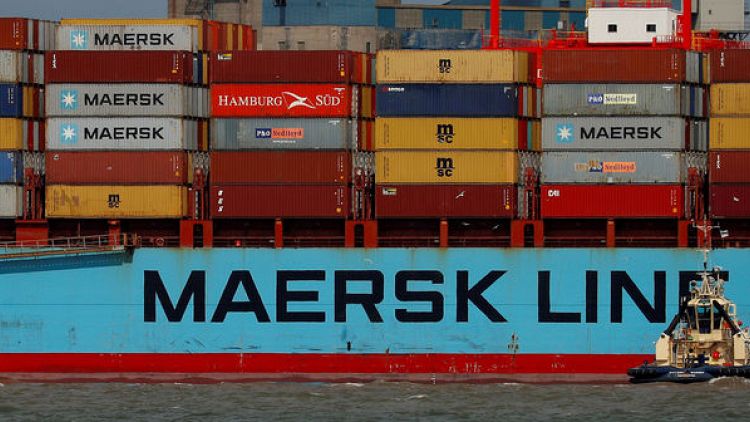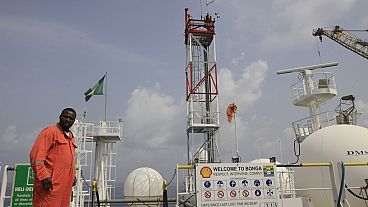By Roslan Khasawneh
SINGAPORE (Reuters) - Immediate action is required if the global shipping industry is to meet a target of halving its carbon emissions by the middle of the century, but how to achieve this remains unclear, a report showed on Thursday.
Maritime shipping, which represents about 90% of international trade, accounts for 2.2% of global carbon dioxide (CO2) emissions. The U.N.'s International Maritime Organization (IMO) has a goal to cut greenhouse gas (GHG) emissions by 50% from 2008 levels by 2050.
To achieve the IMO target, "alternative fuels will be needed, based on renewable sources and production methods, to provide low- or even zero-carbon solutions," said the International Renewable Energy Agency (IRENA) in a report released at the Global Maritime Forum in Singapore.
But there is no clear path yet towards achieving this goal, which will require the development of alternative fuel sources, significant infrastructure investments and technological advances.
"While the potential for cutting the carbon footprint varies from fuel to fuel and needs to be analysed on a life-cycle basis, the main barrier is the economics associated with each fuel and propulsion means," IRENA said.
Alternatives to fossil fuels include liquid and gaseous biofuel options as well as hydrogen and hydrogen derivatives such as methanol and ammonia, it said.
"Alternative fuel options all have different advantages and disadvantages, and there is no consensus on which option is best," the report said.
Alternative fuels are not yet economically competitive. "As their adoption grows and technology improves, however, they are expected to become competitive in the medium to long term."
Price and availability will likely be decisive in determining the choice of fuel, with other factors including infrastructural adaptation costs and technological maturity.
Actions must consider the overall life-cycle emissions of alternative options since upstream emissions from producing these may limit or offset overall reductions, the report said.
While there has been increased interest in the use of liquefied natural gas (LNG) as a shipping fuel, some industry participants view this as a temporary and bridging solution.
"The shipping sector will eventually need to shift from fossil-based LNG to renewable fuels and alternative propulsion means," IRENA said.
Shipping can also reduce its carbon footprint by improving vessel design to reduce fuel consumption and being more energy-efficient.
The report noted that global trade volumes are forecast to expand by 3.8% annually over the next five years.
"If no action is taken promptly, demand for marine fossil fuels – and thus the associated carbon emissions – will continue to grow steadily," IRENA said.
"In the absence of suitable mitigation policies, the GHG emissions associated with the shipping sector could grow between 50% and 250% by 2050," it added, citing a 2015 IMO report.
(Reporting by Roslan Khasawneh; Editing by Dale Hudson)



